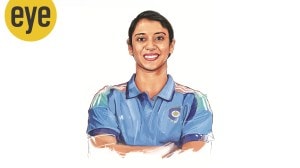UN’s point man in Kashmir has skeletons in his closet
NEW DELHI, NOV 17: For years, he has been the head of the United Nations team in Kashmir, accepting reports of alleged human rights violatio...

NEW DELHI, NOV 17: For years, he has been the head of the United Nations team in Kashmir, accepting reports of alleged human rights violations in the Valley. Now it’s time for the Commander of the United Nations Military Observer Group in India and Pakistan (UNMOGIP) to go home to Chile. For his alleged role in the dreaded War Council in 1972 which, during General Pinochet’s dictatorship, launched a bloody anti-Communist drive.
The official explanation, say Army sources here, is that Brigadier-General Sergio Hernon Espinoza Davies, of the Chilean Army, is being recalled from his position in the Valley because he has been promoted. “This being a Brigadier-level appointment, he cannot possibly continue serving here.” The truth, however, say sources, is that the National Commission for Truth and Reconciliation in Chile has unearthed evidence indicting Davies for human rights violations in 1973.
During the early days of Pinochet’s repressive rule, Davies was a young Captain with about eight years ofservice, and serving with the War Council.
An Artillery officer, he was commissioned in 1965, say sources. After undergoing a course for subordinate officers at the Chilean Artillery School in 1972, he is believed to have served in the War Council which played a key role in the massacre of several innocent civilians. It’s Davies’ alleged role in the campaign against the Communists and Socialists that has been unearthed by the Truth and Reconciliation Commission.
Comparing him to his predecessors, Army officers from Srinagar claim, that Davies functioned as an “activist” Commander, and “always under the impression that he could sort out this issue.”
UNMOGIP was created by the United Nations following the ceasefire between India and Pakistan at the end of the first Kashmir War, and after Prime Minister Nehru took the matter to the world body. The role of UNMOGIP was to monitor “ceasefire violations” across what was then known as the Ceasefire Line. Following the Shimla Agreement of 1972, the linewas renamed as the Line of Control (LOC), and which, said an Army officer, “must make the UNMOGIP chaps the most employed ones since there is firing across the LOC virtually every day.”
It was also after 1972 that India withdrew the unrestricted privileges enjoyed by UNMOGIP, since, as sources said, “the Kashmir issue was now officially recognised as a bilateral matter. We really don’t see what role UNMOGIP can now perform here.” That downgrading disallowed the UNMOGIP officers from freely visiting posts along the LOC, a privilege which Pakistan continues to bestow upon them.
This, however, has not prevented India from according the UNMOGIP officers diplomatic status on account of their UN assignment, and the Army from giving them additional privileges as service officers when they come to India on rotation from Pakistan. While four Army vehicles are earmarked for UNMOGIP officers here, they also enjoy canteen, medical and other facilities enjoyed by all Army officers. “They are also in uniform, andthis is our way of showing them the respect that is due to any soldier in uniform,”said a senior Army officer.
As for Davies, a senior Army officer said, he has also been decorated with a medal called Mission Accomplished, of second class, presented by the President of the Republic.’ In his case, said the officer, the President of the Republic was Gen Pinochet, currently in a London jail.



- 01
- 02
- 03
- 04
- 05




























